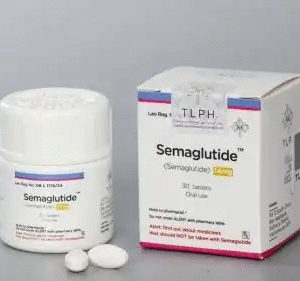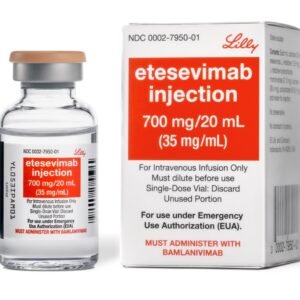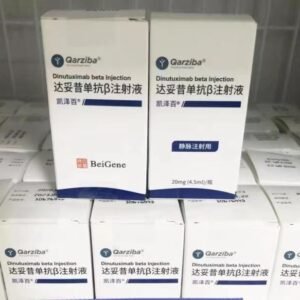Ripretinib Tablets
Function and indication: This product is suitable for the treatment of adult patients with advanced gastrointestinal stromal tumors (GIST) who have previously received 3 or more tyrosine kinase inhibitors (including imatinib). This indication is conditionally approved based on the results of the 4-line GISTINVICTUS study. The full approval of this indication will depend on the clinical benefit of the ongoing ZL-2307-002 trial in Chinese patients. (See [Clinical Trials])
Usage and Dosage:
Recommended dose The recommended dose of this product is 150 mg, once a day, orally, which can be taken with food or on an empty stomach until disease progression or intolerable toxicity occurs. Patients should be instructed to swallow the whole tablet. Patients should be instructed to take this product at the same time every day. Patients should be instructed to make up for missed regular medication time within 8 hours. Patients should be instructed that if vomiting occurs after taking the medicine, they do not need to make up for it on the same day, and continue to take the medicine at the regular medication time the next day and thereafter. Dose adjustment due to adverse reactions If the dose needs to be reduced due to adverse reactions, the recommended dose is: Ripretinib 100 mg, once a day, orally. If patients cannot tolerate ripretinib 100 mg once daily orally, the drug should be permanently discontinued. If adverse reactions occur, the recommended dose adjustment is shown in Table 1. Patients with hepatic impairment No dose adjustment is required for patients with mild hepatic impairment (total bilirubin ≤ ULN and AST> ULN, or total bilirubin 1-1.5xULN and any level of AST). The recommended dose of this product has not been established in patients with moderate or severe hepatic impairment (see [Pharmacokinetics]).
Adverse reactions:
Clinical trial experience Because various clinical trials are conducted under different conditions, it is not possible to directly compare the incidence of adverse reactions observed in clinical trials of two different drugs, and the incidence of adverse reactions in clinical trials may not reflect the incidence in clinical practice. The safety of ripretinib was evaluated in the INVICTUS study in patients with intestinal stromal tumors who had previously received imatinib, sunitinib, and regorafenib (see [Clinical Trials]). Patients received ripretinib 150 mg orally once daily (n=85) or placebo (n=43). Among patients receiving ripretinib, 46% of patients received treatment for ≥6 months, and 3.5% of patients received treatment for more than 1 year. Serious adverse reactions occurred in 31% of patients treated with ripretinib, including abdominal pain (4.7%), anemia (3.5%), nausea (2.4%), and vomiting (2.4%). Adverse reactions that led to permanent discontinuation of treatment in 8% of patients treated with ripretinib (incidence ≥1%) included worsening of general status (2.4%), anemia (1.2%), heart failure (1.2%), PPES (1.2%), and vomiting (1.2%). Adverse reactions that led to discontinuation of treatment in 24% of patients treated with ripretinib (incidence >2%) included nausea (3.5%), increased blood bilirubin (2.4%), and PPES (2.4%). Dose reductions due to adverse reactions occurred in 7% of patients treated with ripretinib. Adverse reactions leading to dose reductions (incidence ≥1.2%) included abdominal pain, agitation, alopecia, arthritis, dermatitis, gastrointestinal disorders, hyperesthesia, myalgia, PPES, and weight loss. The most common adverse reactions (≥20%) were alopecia, fatigue, nausea, abdominal pain, constipation, myalgia, diarrhea, decreased appetite, PPES, and vomiting. The most common grade 3 or 4 laboratory abnormalities (≥4%) were increased serum lipase and decreased serum phosphate. Tables 2 and 3 below summarize adverse reactions and important laboratory abnormalities that occurred in the INVICTUS study, respectively. Palmar-plantar erythrodysesthesia syndrome In the INVICTUS study, 21% of the 85 patients treated with ripretinib experienced grade 1-2 palmar-plantar erythrodysesthesia syndrome (PPES). PPES led to permanent discontinuation of treatment in 1.2% of patients, suspension of treatment in 2.4% of patients, and dose reduction in 1.2% of patients. New Primary Cutaneous Malignancies In the INVICTUS study, 4.7% of the 85 patients treated with ripretinib developed cutaneous squamous cell carcinoma (cuSCC), with a median time to first occurrence of this event of 4.6 months (range: 3.8-6 months). In the pooled safety population, cuSCC and keratoacanthoma occurred in 7% and 1.9% of the 351 patients, respectively. In the INVICTUS study, 2.4% of the 85 patients treated with ripretinib developed melanoma. In the pooled safety population, 0.9% of the 351 patients developed melanoma. Hypertension In the INVICTUS study, 14% of the 85 patients treated with ripretinib developed Grade 1-3 hypertension, including Grade 3 hypertension in 7% of the patients. Cardiac Dysfunction In the INVICTUS study, 1.2% of the 85 patients treated with ripretinib developed heart failure. In the INVICTUS study, 2.6% of the 77 patients treated with Ripretinib who had at least one echocardiogram at baseline and after baseline experienced a grade 3 reduced ejection fraction. In the pooled safety population, 3.4% of the 263 patients treated with Ripretinib who had at least one echocardiogram at baseline and after baseline experienced a grade 3 reduced ejection fraction. Other cardiac-related adverse reactions with an incidence of <10% in 351 patients in the pooled safety population were cardiac ischemic events (including cardiac arrest, acute coronary syndrome, and myocardial infarction), with an incidence of 1.1%, of which cardiac arrest and myocardial infarction each resulted in the death of one patient.
Contraindications:
None
Share:
Products
Our offers
Health Classification
Let us work together to protect precious health






























